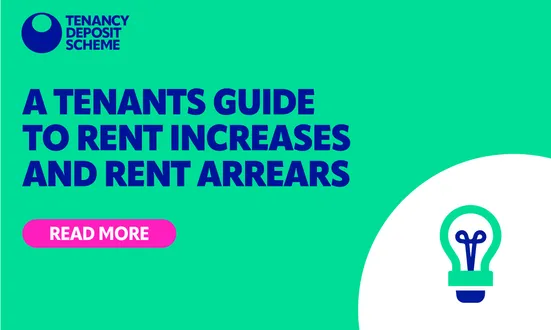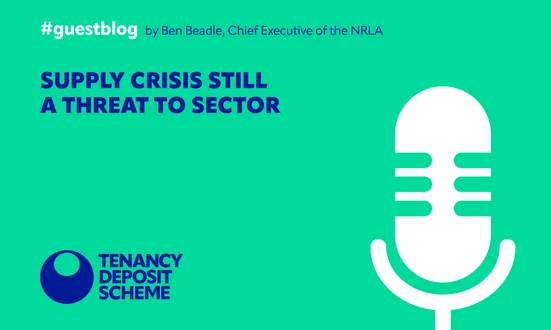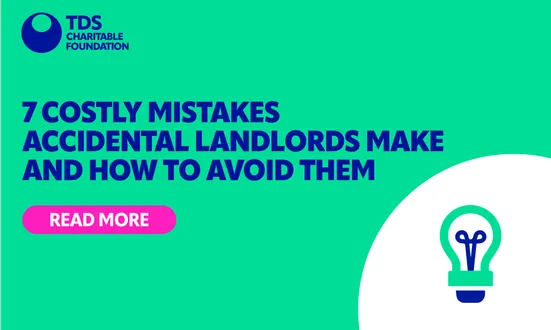The Tenancy Deposit Scheme (TDS) is a government-approved scheme for the protection of tenancy deposits; we offer both insured and custodial protection. We provide free and impartial adjudication for disputes that arise over the deductions from the tenancy deposits that we protect.
This article has been written in response to a tenant’s query: “When should my landlord return my deposit?”
Once a tenancy has ended, tenants are keen to have their deposit returned in a timely manner. The question is often asked, when will I get my deposit, or: how quickly will I get my deposit back?
Firstly, your tenancy deposit will be protected in one of these two tenancy deposit protection schemes:
- Custodial – this is where the scheme itself holds the deposit during the tenancy.
- Insured –where the landlord or agent holds the deposit during the tenancy, but must give it to the scheme at the end of the tenancy if there is a dispute. The scheme is insured because this guarantees that tenants will always get back the money to which they are entitled.
Tenants can find out which scheme their deposit is protected in by visiting this link and entering their surname, deposit amount, the start date of the tenancy, and the tenancy postcode.
 Rules surrounding returning a deposit
Rules surrounding returning a deposit
TDS Insured Scheme
When your landlord holds your deposit (therefore protected in the Insured scheme), they should return your deposit within 10 days from the day you first request its return. However, it’s important to remember that tenants cannot ask for their deposit back before the tenancy has officially ended.
When the deposit is protected in an insurance scheme, the deposit protection service will not be able to return it directly, as the deposit will be in your landlord’s possession. If your landlord is using an insurance-based scheme, once they receive your request for repayment, they will either repay the deposit or let you know what they intend to deduct for things like cleaning, damage or outstanding rent.
TDS Custodial Scheme
If your deposit is secured in a Custodial scheme (where the deposit protection scheme keeps hold of your deposit), you have the option to directly request its return through the scheme. Upon your request, your landlord or agent will be asked to respond. If they agree with the request, your return will be processed swiftly, usually within 5 working days.
 What if my landlord is seeking deductions from my deposit?
What if my landlord is seeking deductions from my deposit?
If your landlord is seeking deductions from an issue with your tenancy, such as cleaning, redecoration, or rent arrears, they should write to you and inform you of the amount they wish to deduct, and explain why. If you are unclear about what the deductions are for, you should seek clarity from your landlord or agent. The deposit scheme will not have any information about the landlord’s claim at that point.
 Self Resolution
Self Resolution
For the first step in dispute resolution, we have a self-resolution model which allows both parties to negotiate on how much of the deposit should be repaid to them, through an online system. This model means that both parties can change their initial requests until they reach middle ground and do not have to proceed to adjudication.
 Alternative Dispute Resolution
Alternative Dispute Resolution
If you believe that the landlord’s claim to money from the deposit is fair, then you and the landlord can agree on the figure between you.
If however, you cannot come to an agreement using the self resolution tool, then you may need to use a dispute resolution service.
This service is provided free of charge by the scheme that protected your deposit, but you should exhaust all possibilities to resolve the dispute directly with your landlord or agent first. We find that most disputes can be resolved quickly through clear communication between the parties.
If you do ask the Tenancy Deposit Scheme to resolve the dispute, an adjudicator will look over the evidence provided by both the tenant and the landlord, and will hold the disputed amount during the adjudication process. Any decision made by the Tenancy Deposit Scheme is final, although you or your landlord may choose to take the matter further by going to court.
 When to take a dispute further
When to take a dispute further
The Tenancy Deposit Scheme is only able to provide dispute resolution for matters concerning the deposit. If a tenant wishes to make a counterclaim, they will need to take that matter to court. As the deposit is the tenant’s money held in security by the landlord against the tenant’s obligations under the tenancy agreement, we are unable to consider any claims the tenant may have against the landlord.
The Tenancy Deposit Scheme regularly publishes case studies of previous disputes and you can find our guide on how to submit a dispute here.
We recommend that landlords, agents and tenants engage in open communication throughout the tenancy so that everyone is aware of their responsibilities and expectations so as to prevent disputes from arising. Indeed less than 1% of tenancies protected with theTenancy Deposit Scheme end in dispute.
For our landlord tips on best practice please click here, for tenant tips please view our tenant FAQ page.
The Tenancy Deposit Scheme is part of The Dispute Service (TDS), the largest tenancy deposit protection (by value) and resolution service provider in the UK making life easier for tens of thousands of agents, landlords, developers, and millions of tenants and homebuyers.
Our award-winning customer service is highly rated on both Trustpilot and Google, and we’re backed by the NRLA, Propertymark and RICS.
We provide quick and hassle-free online deposit protection, free guides and information in our online help centre, free dispute resolution and free mid-tenancy mediation for tenants and landlords.
Our free tenant lifecycle app, tlyfe, makes renting smarter. Manage your TDS deposit, get pre-qualified, build your credit rating, and more.
Other news stories


